STAR TREK: THE MOTION PICTURE (1979)
When an alien spacecraft approaches Earth, Admiral James T. Kirk resumes command of the overhauled U.S.S Enterprise in order to intercept it.
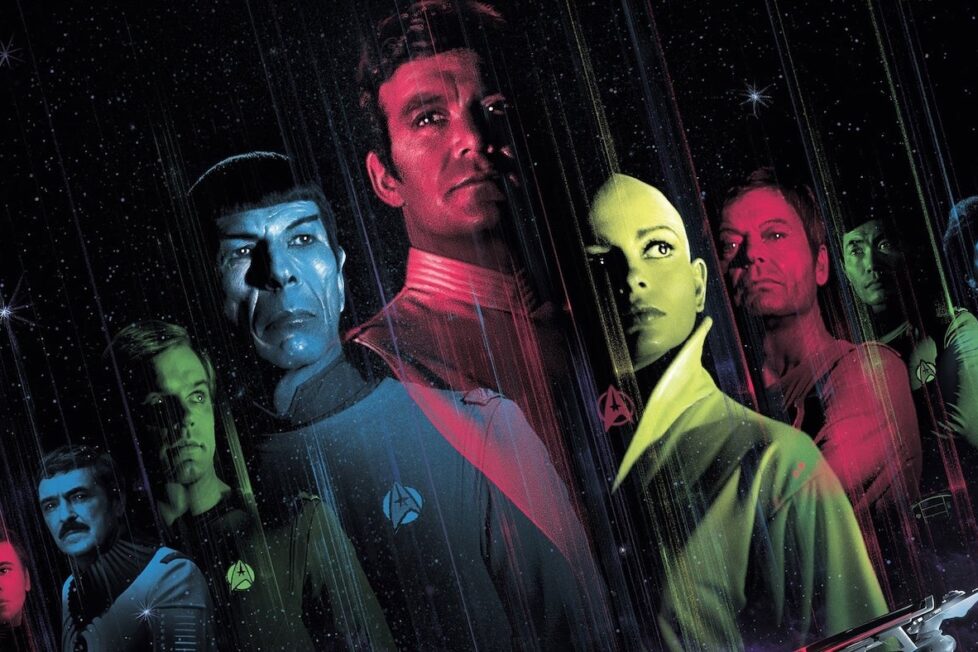
When an alien spacecraft approaches Earth, Admiral James T. Kirk resumes command of the overhauled U.S.S Enterprise in order to intercept it.


While speaking at a 1968 Star Trek convention, Gene Roddenberry promised fans a prequel to his currently-airing TV series, to show how the crew of the U.S.S Enterprise first met. This prequel never happened because NBC cancelled Star Trek the next year, blaming a drop in viewing figures over its three seasons. This may have been the end of the classic show’s original run, but it certainly wasn’t the end of the Star Trek brand. Its 79 episodes were often repeated on television and its fanbase only grew, prompting a revival in the form of a short-lived animated show in 1972. And then, after the phenomenal success of Star Wars (1977), Paramount Pictures saw an opportunity to cash in on the public’s appetite for big-budget sci-fi, so they ordered a Star Trek film into development.
Many screenwriters proposed ideas for what later became Star Trek: The Motion Picture, but the studio wasn’t happy with any of them and the project was reconsidered as a sequel TV series called Star Trek: Phase II. The pilot script for that show, “In Thy Image”, concerned an ancient NASA probe returning to Earth with newfound sentience after it encountered an alien intelligence in deep space. The idea was so strong that it was retooled into the premise of the originally-intended film by Harold Livingstone, meaning production resumed on The Motion Picture.
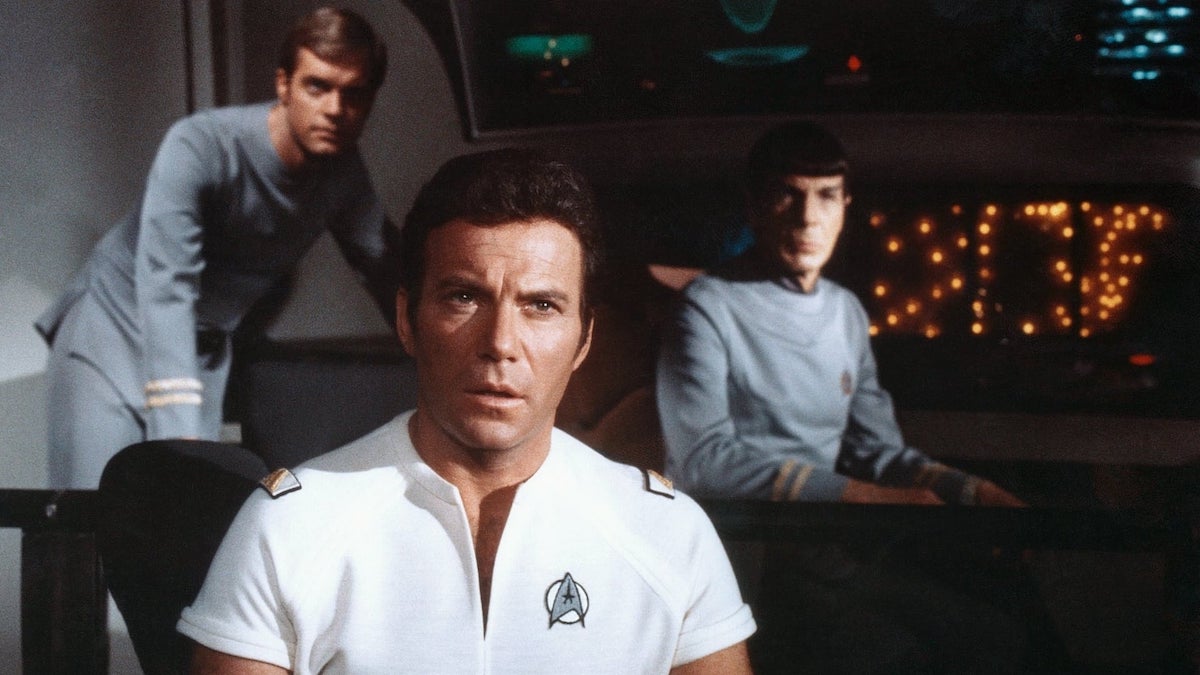
The resulting movie reunited the original TV show’s famous cast: James T. Kirk (William Shatner), since promoted from Captain to Admiral; his half-Vulcan science officer Spock (Leonard Nimoy, who only agreed to reprise his role with script approval); sardonic friend Dr Leonard “Bones” McCoy (DeForest Kelly); skilled helmsman Hikaru Sulu (George Takei); polyglot comms officer Uhura (Nichelle Nichols); enthusiastic weapons officer Pavel Chekov (Walter Koenig); and sardonic chief engineer Montgomery “Scotty” Scott (James Doohan). Two new characters joined them in the shape of enigmatic bald alien navigator Ilia (Persis Khambatta), and the Enterprise’s usurped Captain Willard Decker (Stephen Collins).
The story stayed true to Phase II’s pilot script, with Admiral Kirk assuming command of a refitted U.S.S Enterprise after the disappearance of three Klingon ships near a strange cosmic cloud. Meanwhile, on his sweltering homeworld of Vulcan during a ritual, Spock senses the approach of an alien intelligence within the cloud and decides to reunite with his old Starfleet crew to investigate.
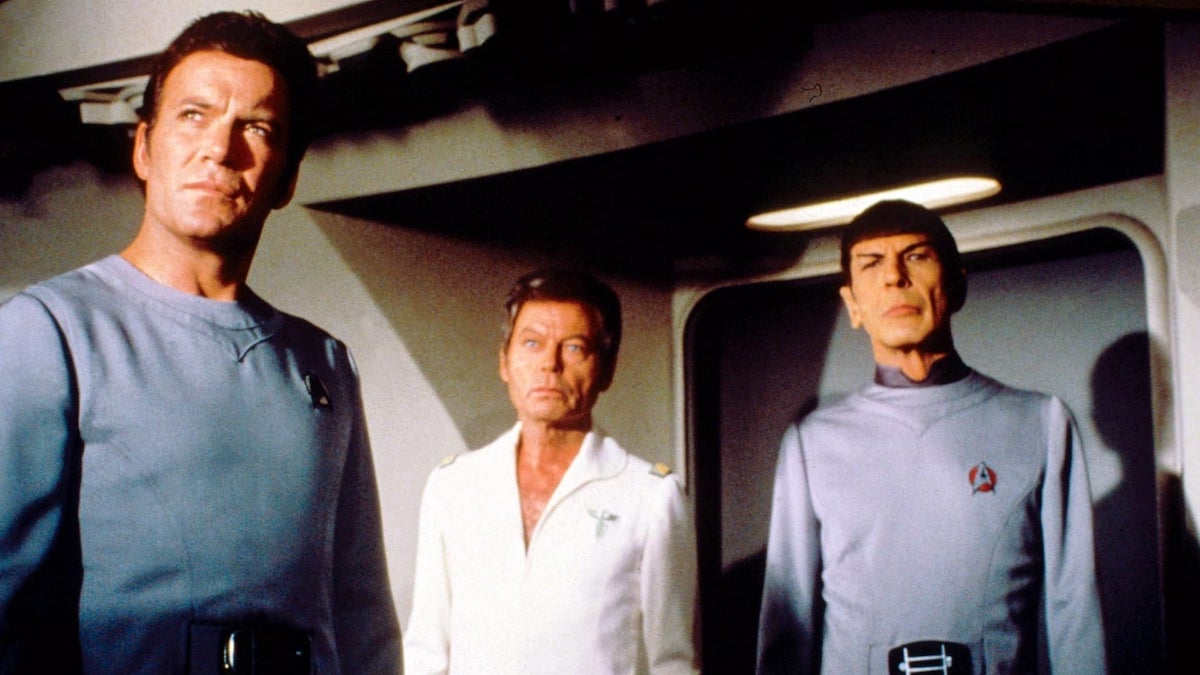
The Motion Picture is the most navel-gazing and cumbersome Star Trek movie, as it’s based on a high concept pitch one could imagine author Arthur C. Clarke dreaming up. Or, indeed, John Meredyth Lucas, whose Trek script for “The Changeling” (about a planet-destroying space probe called Nomad) has clear similarities to this big-screen adventure. While cerebral in concept and epic in visuals, blessed by a rousing Jerry Goldsmith soundtrack, The Motion Picture was lumbered with a languorous runtime that stretched the idea beyond what was intended to be the runtime of a TV episode.
Most infamously, a plethora of Enterprise ‘hero shots’ eat up a considerable amount of time before the story gets going, and then we spend an interminable time just travelling through a wormhole. The filmmakers were clearly in love with the scale and majesty of what could be achieved with cutting-edge VFX of the time, but it came at the cost of a well-paced storyline.
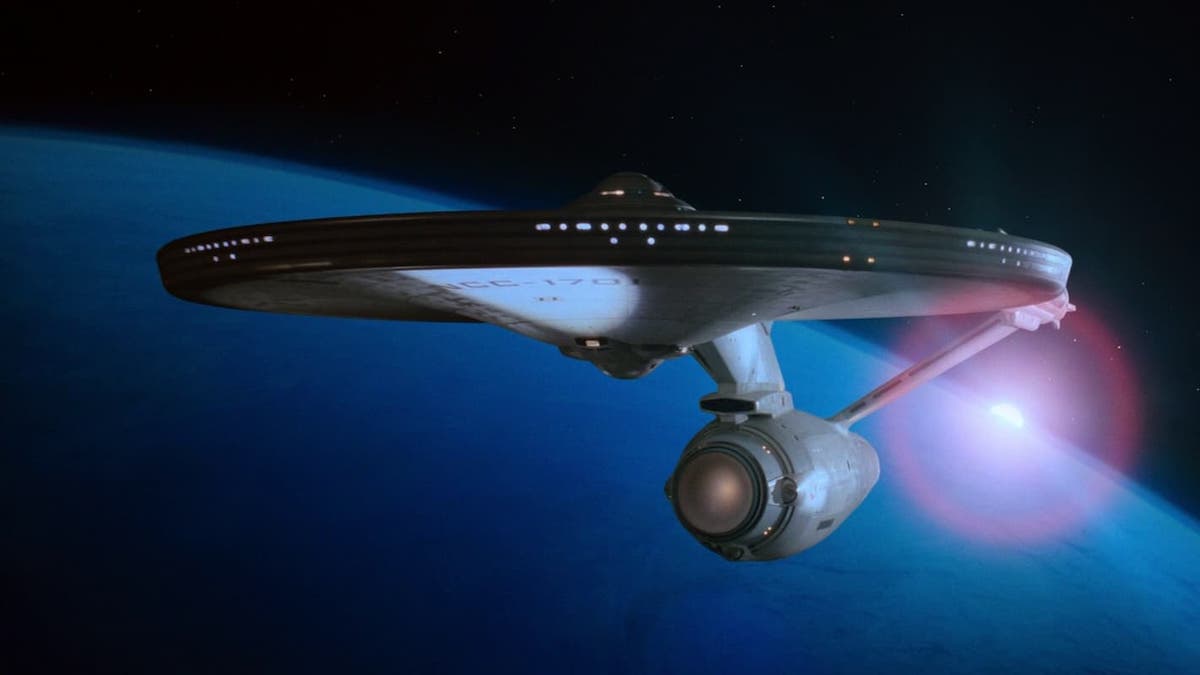
TMP felt especially languid compared to the zesty fun that typified Star Wars, released only two years earlier, and the success of which Trek’s return was designed to emulate. The film’s aesthetic (notably the pastel-coloured uniforms that resemble futuristic wet suits) are also a drab take on the primary-coloured ’60s designs—although the revamped and more metallic Enterprise arguably never looked better again.
All the performances are undermined by a lack of the cheeky chemistry that made the TV series so appealing, particularly between the key triptych of Kirk, Spock, and McCoy. One also has to wonder why they bothered introducing two new characters in Dekker and Ilia, considering there’s barely enough material to spread amongst the regulars. It was probably because the newcomers prove to be expendable.
There are definitely flashes of the old show’s vibe here and there, but most of the characters are straight-jacketed by TMP’s high-brow tone. It’s almost as if everyone considered the TV series too frivolous to update faithfully for the grittier 1970s, so they went in the opposite direction. The familiar wit, excitement, and humour are mostly lost.
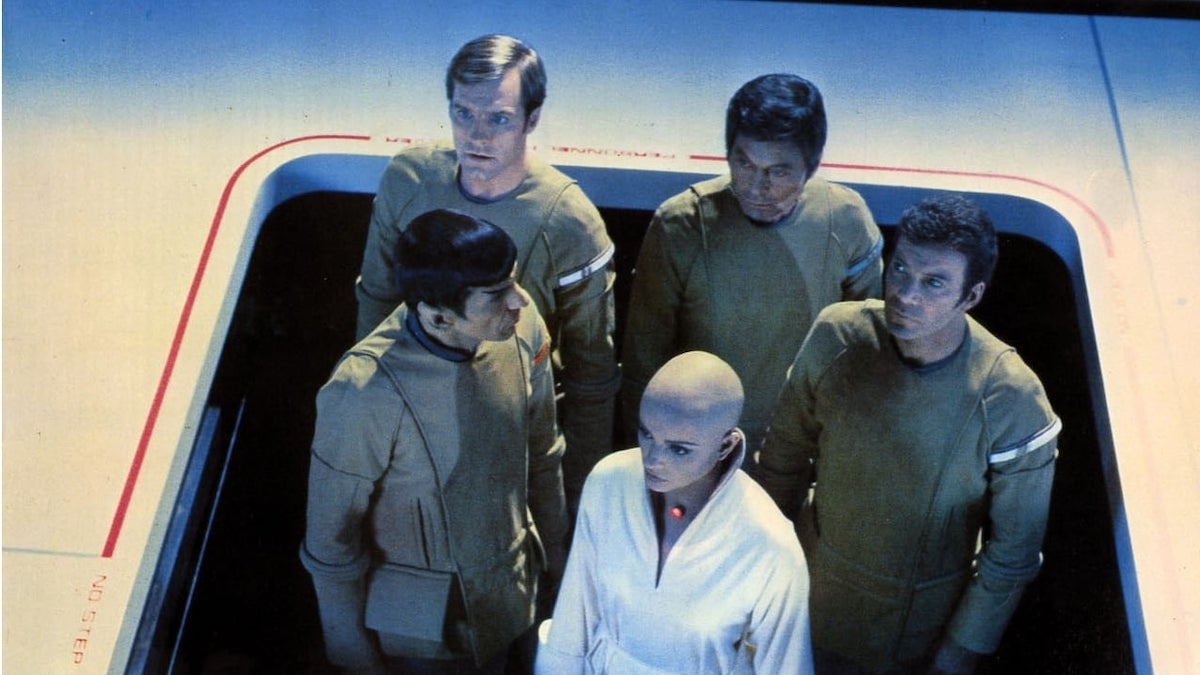
Issues raised about a sentient being’s need for evolution are certainly worthy of the Star Trek brand and very different to how the modern Trek films approach their stories, but the film coasts by on too much impulse power and never enters warp. Legendary director Robert Wise (The Day The Earth Stood Still, The Andromeda Strain) was clearly aiming for something in the vein of Stanley Kubrick’s 2001: A Space Odyssey, only in Star Trek attire, which was a misguided approach in the wake of Star Wars fever and what audiences had been conditioned to expect from the ’60s show. Fortunately, Star Trek II: The Wrath of Khan (1982) was a more astute way to update the series without forgetting the sense of camaraderie that underpinned some old-fashioned action and adventure.
But for all its many flaws (only some of which can be improved with editing and improved VFX), thank heavens for small mercies like Goldsmith’s sublime music—which was so good a key track was repurposed as Star Trek: The Next Generation‘s theme tune eight years later. And The Motion Picture is certainly the Star Trek film canon’s most cerebral approach to a story, that the sequels were scared to return to, although in some ways Star Trek IV: The Voyage Home (1987) and its own inscrutable alien intelligence approaching Earth struck the balance this one couldn’t.
USA | 1979 | 132 MINUTES | 2.39:1 | COLOUR | ENGLISH • KLINGON

Despite being of the least popular Star Trek movies, The Motion Picture has been the benefactor of numerous attempts to improve its standing, with this revision of the 2001 Director’s Edition DVD being the best it’s looked and sounded. There are new scenes and alternate takes to make the experience feel a little different, but most notably Paramount has completely restored the film using the 35mm negatives with a new colour grading in Dolby Vision (and HDR10) and computer-generated versions of some VFX sequences that blend into the aesthetic perfectly (not unlike what was achieved with The Next Generation series on Blu-ray). These updates are particularly beneficial when it comes to the fine details of the V’Ger ship, helping to sell its enormous scale like never before.
There’s also the Dolby Atmos soundtrack from 2021’s theatrical re-issue, which remains astonishing if only to hear Jerry Goldsmith’s rousing score in this manner. There’s plenty of dynamic speaker action and effects coming from behind above, to really place you within the reality of the movie at all times. Dialogue is clean and crisp, also helped by the fact they’ve added different takes of dialogue that are integrated better into the sound stage.
In addition, if you purchase ‘The Complete Adventure’ deluxe box-set you’ll also find included some stickers, lobby cards, and a booklet with concept art and matte paintings. You’ll also get a second 4K UHD disc containing the 1979 Theatrical Cut with an option to play an extended version of that movie using seamless branching (known as the Special Longer Verison, last released on LaserDisc, based on a 1983 TV cut).

director: Robert Wise.
writer: Harold Livingstone (story by Alan Dean Foster).
starring: William Shatner, Leonard Nimoy, DeForest Kelly, George Takei, Walter Koenig, Nichelle Nichols, James Doohan, Persis Khambatta & Stephen Collins.
